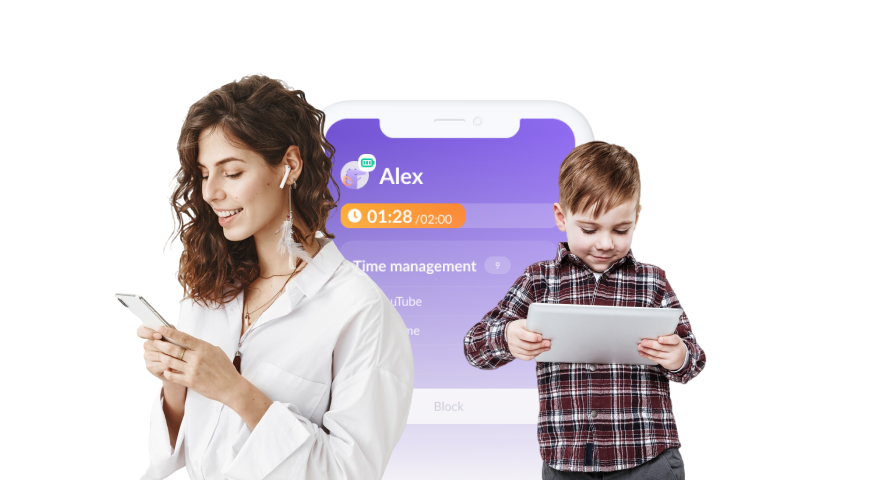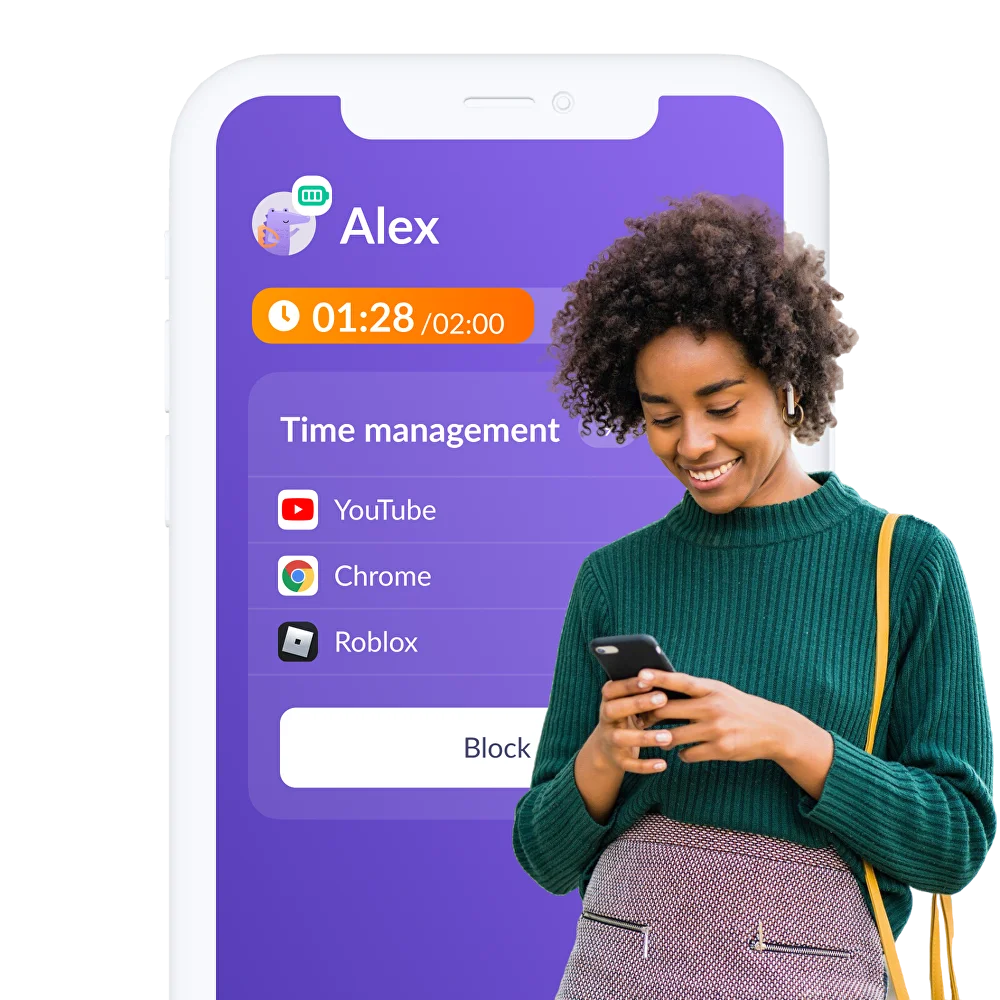Power of Parental Controls: Apps for Teens and Healthy Digital Habits
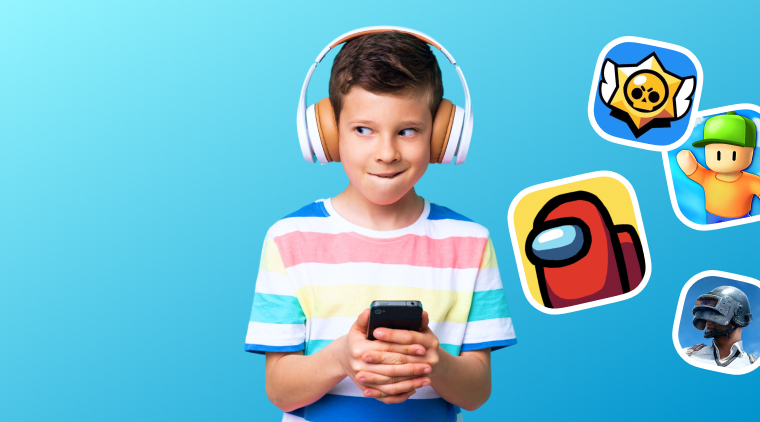
When was the last time you went somewhere and didn’t see at least one teenager on their phone? It’s probably safe to say, it’s been awhile. Child and teen phone use has skyrocketed in the last decade, and most teens have a smartphone and use social media with nearly half of teens saying they’re online almost constantly according to the Pew Research Center. That’s a lot of time spent on their devices.
With their eyes glued to their phones so much, it makes you wonder, what are your teens looking at all day?
Table of Contents
What’s Trending: Popular Apps for Teens Today
We almost don’t even have to say it, because you probably already know which apps your teen is spending the most time on. The popular video streaming apps, YouTube and TikTok, dominate your teens’ screen time. Kids these days are doing everything from connecting with friends by sending short videos, to learning new skills like how to cook a meal or fix something around the house, and they’re even making their own videos about their lived experiences to share with the world.
By the Numbers
In the US alone, the parental controls app, Kids360, has over 1 million connected users in the 9-13 age range. We took a look at the real-time data of how kids with Kids360-protected devices are spending their time and here’s what we found:
YouTube
Coming in first place, with absolutely no surprise, kids spend nearly 21% percent of their time on YouTube.
The popular app is widely used and an integral part of teens’ daily routines. According to recent research by Pew Research Center (2024), about 90% of U.S. teens reported using YouTube, making it the most-used platform among adolescents.
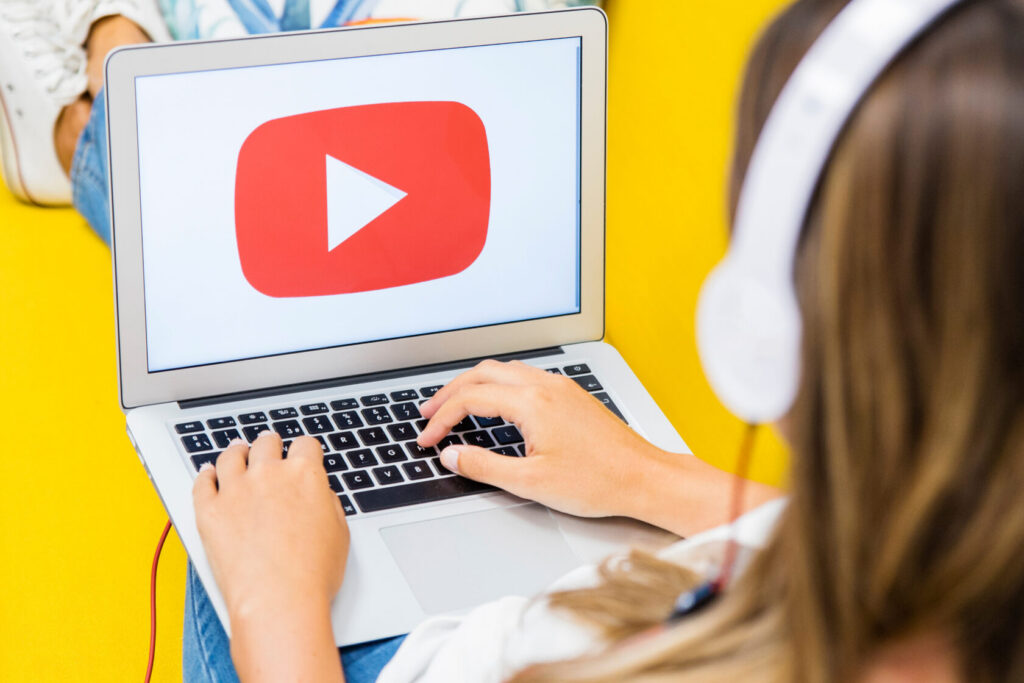
What Teens Are Up To On YouTube:
- Entertainment: Teens watch everything from comedy and music videos to vlogs and short films.
- Education: Many teens turn to YouTube for tutorials, how-tos, and help with schoolwork.
- Identity & Expression: Teens often follow creators who reflect their interests, values, and identities.
- Community: The platform allows teens to feel part of fandoms or online communities built around shared interests.
TikTok
A close second is TikTok with teens spending 17% of their time on the app.
TikTok is a social media app that lets teens create, share, and watch short-form videos, often set to music or sound clips. It features a personalized feed (the For You Page) that quickly adapts to users’ interests using a recommendation algorithm.
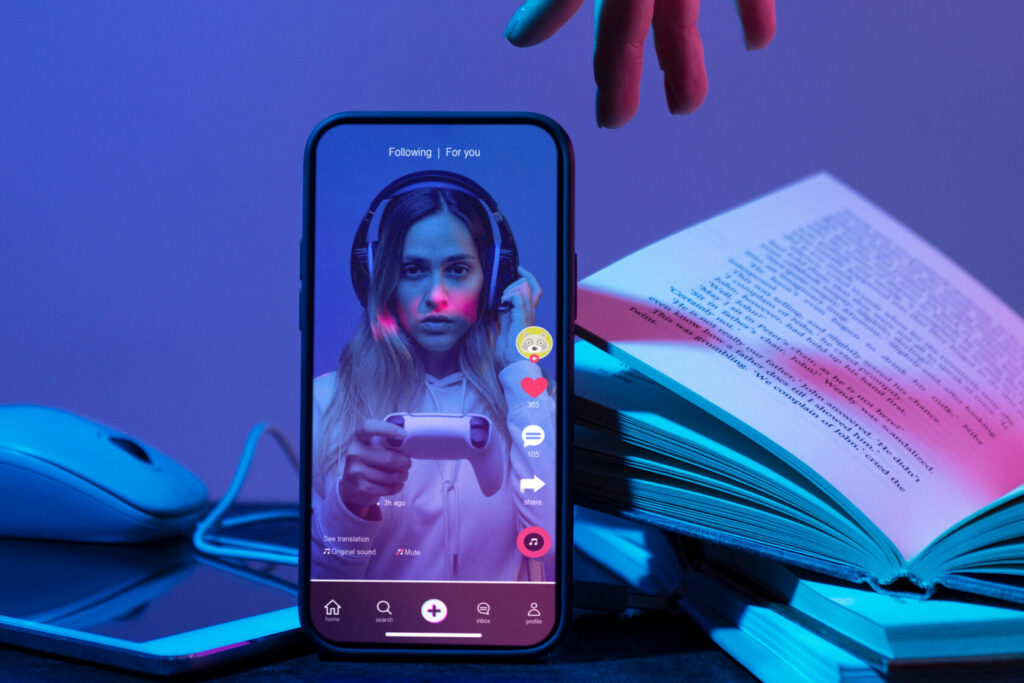
Why teens love TikTok:
- Creative expression: Easy tools for editing, filters, and effects make it fun to create content.
- Trends & challenges: Viral dances, memes, and challenges foster a sense of community and participation.
- Instant entertainment: Short, engaging videos cater to short attention spans and are easy to binge.
- Social connection: Teens connect with friends and creators, comment, and collaborate through duets and stitches.
Roblox
Next, we see the popular gaming app, Roblox, as the third most used app, taking up just about 10% of kids’ screen time.
Roblox is an online platform where teens play, create, and share games made by other users. It’s not just a single game, but a collection of user-generated virtual worlds covering everything from obstacle courses to role-playing simulations.

Why teens like it:
- Creative freedom: Teens can design their own games and experiences using Roblox Studio, encouraging imagination and coding skills.
- Social interaction: Players can chat, team up, and build communities within games.
- Endless variety: With millions of games available, there’s always something new to explore.
- Avatars & customization: Teens enjoy expressing themselves through personalized characters and virtual items.
Fourth in line is the messaging app, WhatsApp, with teens spending about 8% of their time there.
WhatsApp is a free messaging app that allows teens to send text messages, voice messages, images, videos, and make voice/video calls over the internet.
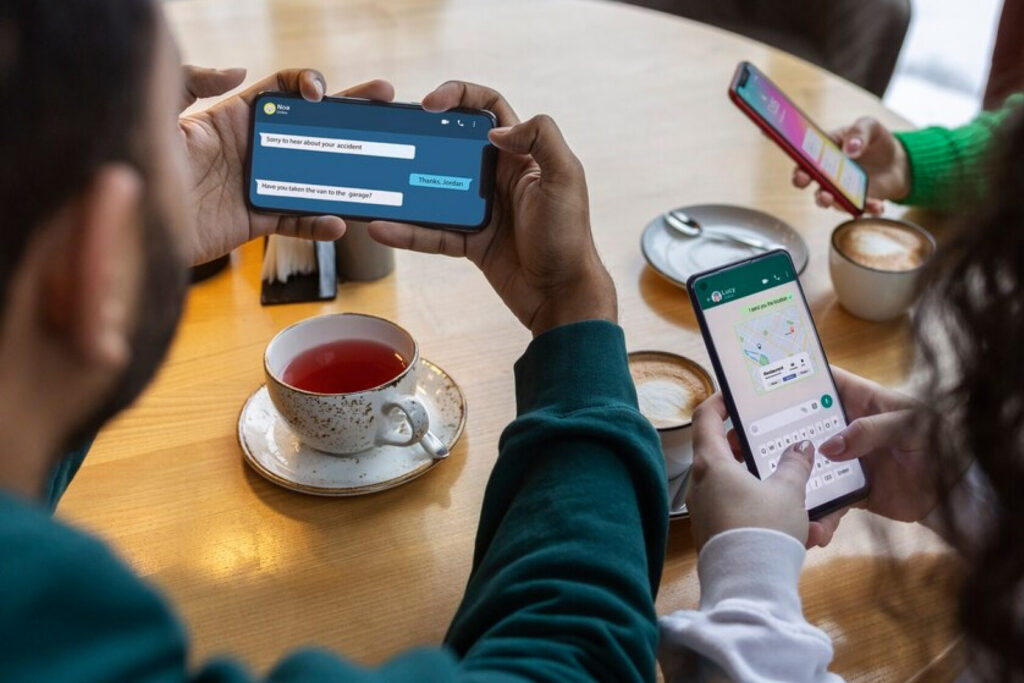
Why teens like it:
- Easy communication: It’s simple and fast for chatting with friends and family.
- Group chats: Teens use group chats to stay connected with friend circles, schoolmates, or activity groups.
- Media sharing: Quick sharing of photos, memes, videos, and voice notes keeps conversations fun and engaging.
- Privacy: End-to-end encryption and no public feed make it feel more private and less distracting than other social apps.
Instagram follows as the fifth most popular app, keeping kids engaged for roughly 5% of their total screen time.
Instagram is a photo and video sharing app where teens post content, view others’ posts, and interact through likes, comments, and direct messages. It also features Stories, Reels, and live streaming.
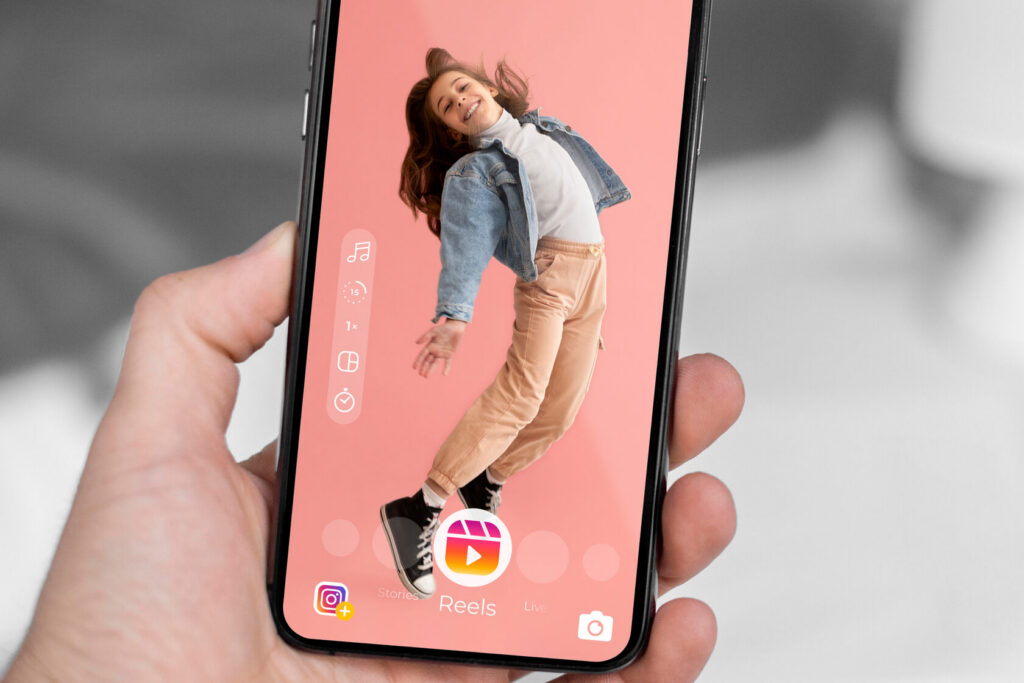
Why teens like it:
- Visual expression: Teens enjoy sharing photos, videos, and aesthetic content to showcase their lives and interests.
- Trends and influencers: They follow celebrities, creators, and trends for entertainment and inspiration.
- Social connection: It’s a central place to interact with friends and stay updated.
- Reels and Stories: Short videos and temporary posts keep content fresh and engaging.
Next, we see Facebook taking up just over 3% of kids’s time at number seven, followed by Free Fire, Chrome, and YouTube Kids come in at eighth, nineth, and tenth places, respectively, with an average of 2% usage time. Surprisingly, Snapchat didn’t make the list of apps most used by Kids360 users, but it is another extremely popular app with teens today.
Helping Your Teens Manage Their Own Screen Time
Parenting teens who want to be online all the time can be a challenge. Thankfully, there are fantastic tools available to help parents, and kids, to help so managing screen time doesn’t turn into a power struggle.
If you’re noticing a lack of boundaries for your teen when it comes to using apps on their phones, here are some things you can do to help them reign it in:
- Encourage intentional viewing over passive scrolling
- Use tools like YouTube Kids or Restricted Mode for younger teens
- Discuss content critically—what they’re watching, why, and how it makes them feel
- Consider screen time limits to balance online and offline activities
If conversation alone isn’t doing the job of encouraging healthy digital habits for your teen, it might be time to call in some reinforcements in the form of parental controls.
Parental control apps are a great tool for parents to keep tabs on their kids’ device use. From monitoring what apps they’re using and which websites they frequent, to setting time limits or blocking certain apps completely, parental control apps give parents peace of mind and help kids build healthy digital habits.
iPhone and Android each come with a set of built-in parental controls. Screen Time on iPhone is a great first step in blocking access to apps, downloading only age appropriate apps from the app store, and setting time limits on apps. Parents can choose to set a passcode to maintain control, or empower their teen to take responsibility for their own screen use and allow them to set their own limits.
Android has similar built-in parental controls and they can be accessed through Google Family Link. Family Link features parental controls such as screen time limits, monitoring and approving app purchases and downloads, account security, and location tracking.
Easy management of your teen’s screen time
While the built-in parental controls that come on your teen’s device are a great place to start, third party apps fill the gaps where built-in controls leave more to be desired. Apps like Kids360 do more than just lockdown your teen’s phone and it’s the first parental control app that kids actually enjoy.
Kids360 makes it easy to manage your teen’s screen time and the app even promotes healthy habits through the use of developmental tasks. When your teen completes a task, they earn extra phone time and learn to allocate their time wisely.
Kids360 doesn’t control, it motivates. The app supports teens in self-development by offering extra time for playing games for completing:
- Logic-based tasks
- Physical exercises
- Tasks set by the parent
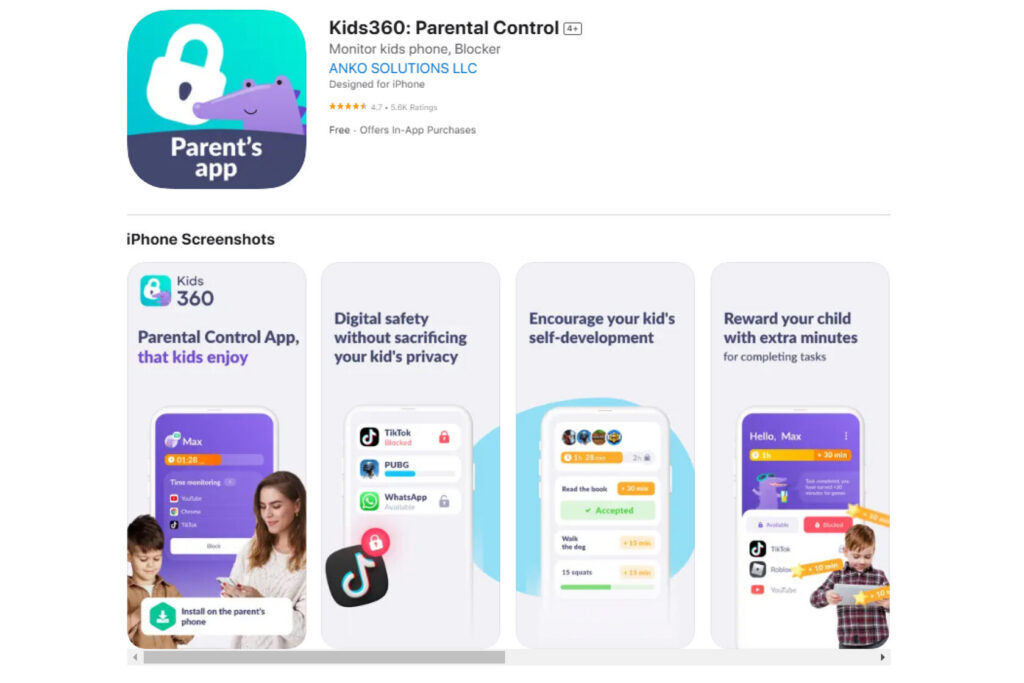
This allows your teen to learn to manage their own time, develop independence and be conscious of the time they spend on their device with more freedom. With Kids360, kids can see the limits you set, get alerts when time on the phone is running out, and learn how to properly and responsibly use technology in today’s world, setting them up for a lifetime of healthy digital habits.
While Kids360 is fun for kids and teens, it still has all the basic functions for parents:
- Set time limits on apps
- Block apps on a schedule for sleep and study time
- Safe Internet use with YouTube and browser control
- App usage statistics
- Real-time geolocation of the child
- A loud signal sent to the child’s phone
- Smart notifications about the child’s behavior on the phone
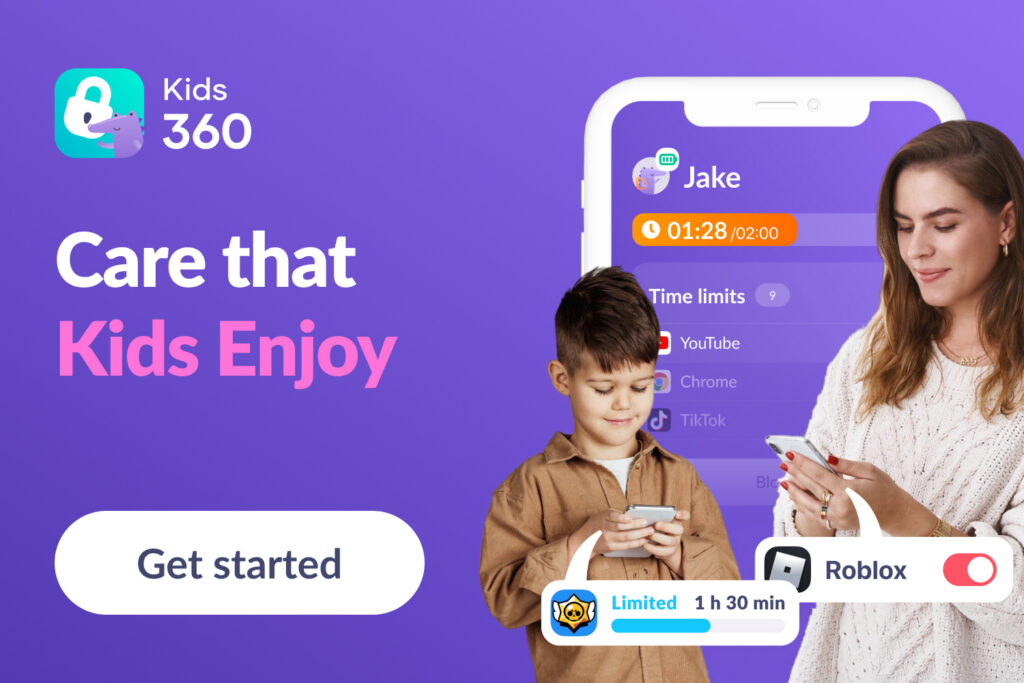
Mental Health and Apps
In today’s digital age, teenage kids are spending more time than ever on apps, most commonly social media, and it’s affecting their mental health in significant ways. While these platforms can offer connection and entertainment, excessive use has been linked to increased anxiety, sleep disruption, and lower self-esteem.
According to the Center for Disease Control, “about 1 in 4 teenagers with 4 hours or more of daily screen time have experienced anxiety (27.1%) or depression symptoms (25.9%) in the past 2 weeks.”
While these statistics are alarming, research also shows that when parents set healthy boundaries around phone and app use—such as limiting screen time, encouraging tech-free activities, and modeling healthy digital habits themselves—teens reported better mental health outcomes overall. Teens with parents who impose some kind of limits on their screen time are more likely to experience improved mood, stronger real-world relationships, and better sleep quality. Intentional involvement from parents can help foster healthier digital habits and support teens’ emotional well-being.
Educational Apps
In an effort to balance how your teen spends their time on their phone, you can try encouraging more education-focused apps. Here are some of the best apps for teens focused on education:
Khan Academy
Khan Academy is a trusted, free learning platform that can help your teen stay on top of schoolwork—and even get ahead. With thousands of interactive lessons, videos, and practice exercises across subjects like math, science, history, and more, it’s a valuable resource for both daily homework support and long-term learning goals. Your teen can review tough topics like algebra or chemistry at their own pace, using step-by-step hints and instant feedback to build confidence and understanding.
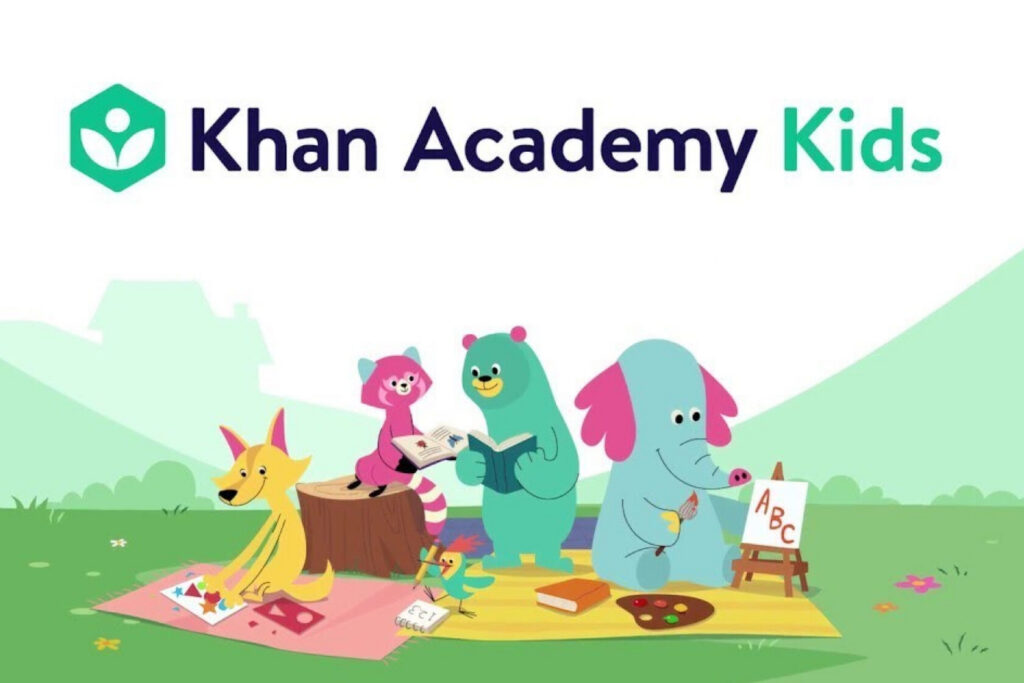
Khan Academy is also partnered with the College Board, offering personalized SAT prep at no cost—an excellent tool for families looking to support test readiness without added expense.
Duolingo
Duolingo is a fun and free language-learning app that turns studying into a game, which your teens will love. With over 40 languages to choose from (including Spanish, French, Italian, German, Japanese, and even less common ones like Welsh or Hawaiian), learners build reading, writing, listening, and speaking skills through short, interactive lessons that turn learning into a game. The app allows parents to track progress and encourage consistent learning.
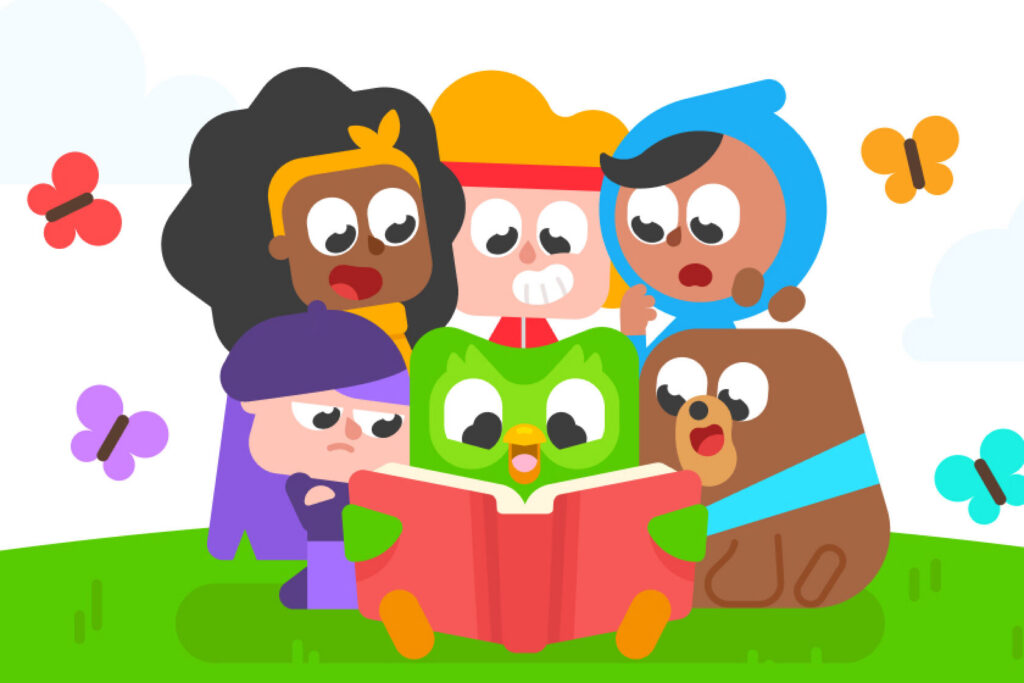
Kids360
Kids360 combines parental control and education in one app, helping kids develop skills while managing screen time. It’s a convenient tool for fostering responsibility and learning. As noted earlier, Kids360 is an app with over 4,000 puzzles and games to enhance logic, problem-solving, and critical thinking. Parents activate them once, and kids get daily tasks. Completing 5 tasks per category earns 5 minutes of screen time, up to 20 minutes daily. Tasks adjust to the child’s age and vary randomly.
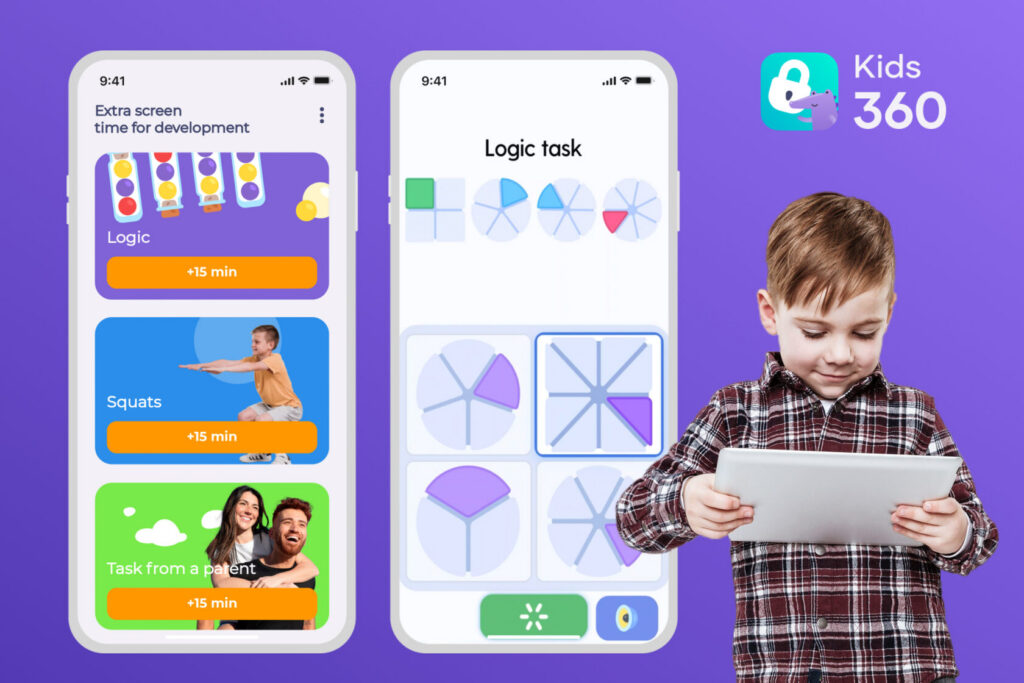
NeuroNation
NeuroNation is a brain-training app designed to support cognitive development through engaging, science-based games. It offers personalized workouts that target key mental skills such as memory, focus, processing speed, flexibility, mental math, and even willpower. Each game is quick to learn and adapts to your teen’s individual strengths and areas for growth, making it a great way to sharpen underused skills or strengthen problem-solving abilities. The app can be helpful for students who struggle with focus or test anxiety.
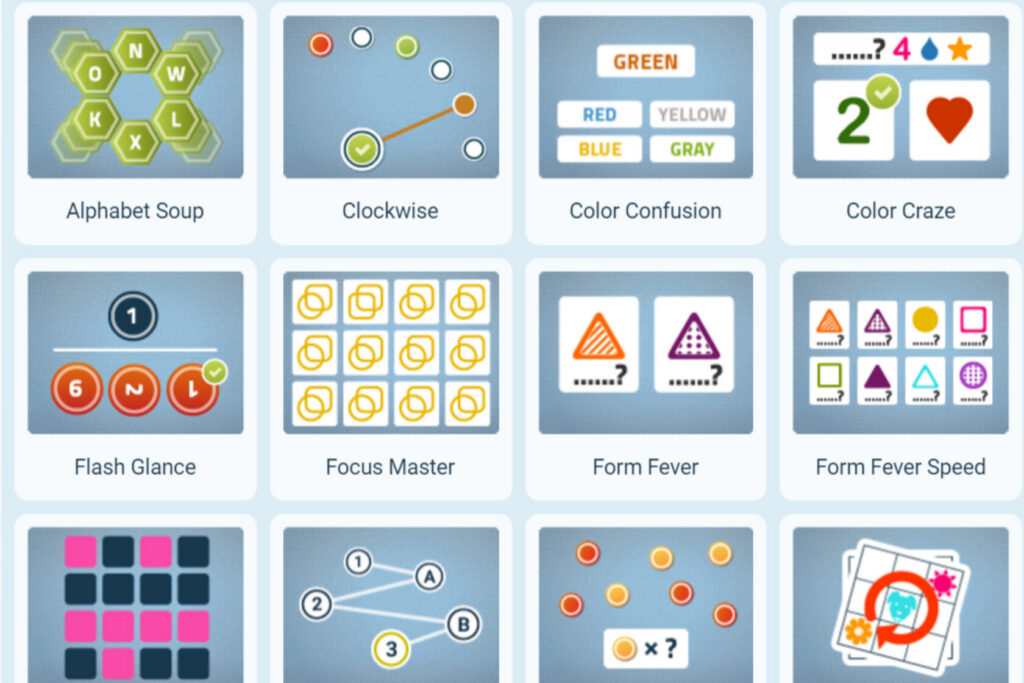
Apps Your Teen Will Love
If your teen is stuck in a YouTube rut, try encouraging them to check out some other fun apps for teens that will encourage creativity, productivity, and more. Here are a few cool apps to get you started:
BeReal
A social photo-sharing app that prompts users once a day to take a picture of whatever they’re doing, encouraging authenticity over curated posts.
CapCut
A free video editing app that’s easy to use, making it perfect for creating TikTok-style videos, school projects, or short films with effects, music, and filters.
Discord
A chat app originally built for gamers but now used widely by teens for voice, video, and text communication across interest-based servers, from study groups to fandoms.
Notion
A productivity and note-taking app that teens can use to organize schoolwork, plan projects, or create personal journals with customizable templates and a sleek interface.
Canva
A user-friendly design app where teens can create everything from social media graphics to posters, collages, and presentations using drag-and-drop tools and templates.
FL Studio Mobile
A music production app where users can compose, edit, and mix tracks, great for teens interested in beatmaking, electronic music, or audio design.
Allowing your teens the freedom they deserve while simultaneously trying to keep them safe when it comes to devices is a huge challenge. Knowing where your kids are spending the majority of their time on their phones is a must and will give you some clues on how to come up with a solid digital parenting strategy. Open communication with your teen, age-appropriate boundaries, and maybe some parental controls will give you peace of mind that your teen is developing good digital habits that they will carry with them for the rest of their lives.
